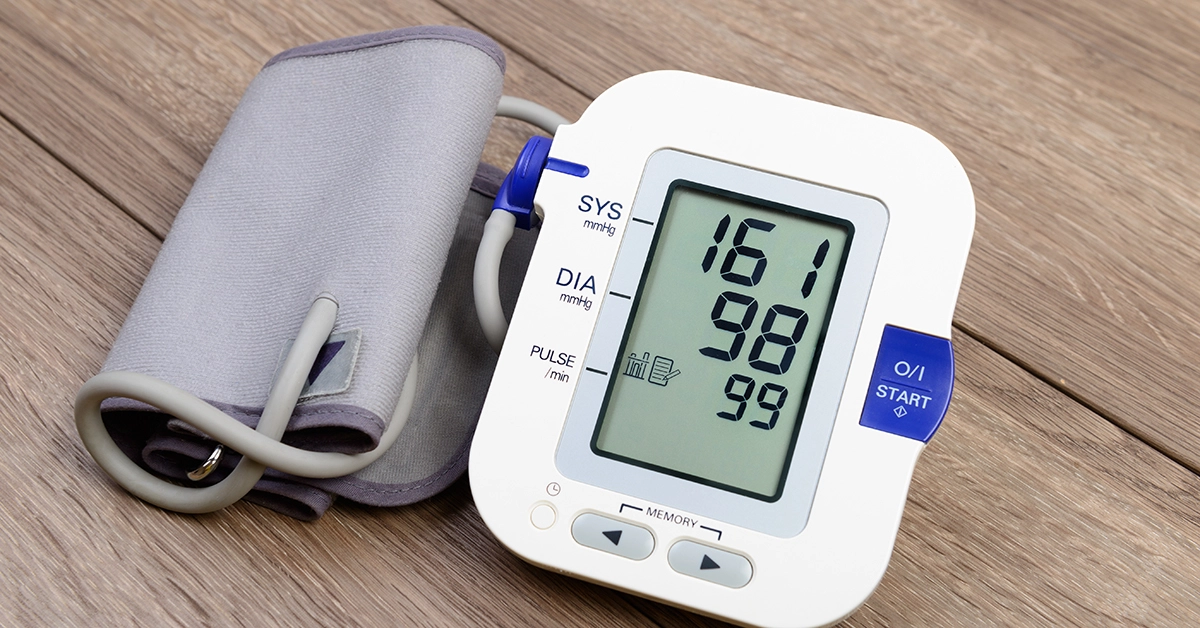5 Lifestyle Tips to Lower Your Blood Pressure

About 108 million adults in the US suffer from high blood pressure – that’s nearly half of all adults. But only about a quarter of them have the condition under control.
Are you one of them?
Follow these science-based tips to lower your blood pressure and take control of your health.
What Is High Blood Pressure?
Normal blood pressure is anything below 120/80 mmHg. Anything higher is considered hypertension, or high blood pressure.
If you have hypertension, it’s critical that you know how to lower your blood pressure.
1. Make Physical Activity a Habit
One of the most effective defenses against high blood pressure is regular physical activity.
When your heart is strong, it doesn’t have to work so hard to keep the blood flowing. This puts less pressure on your blood vessels. Besides, exercise has the added benefits of improving your overall wellbeing and making you feel great.
Don’t think of exercise as a chore. Find an activity you enjoy. Sit less and move more. Even walking for 150 minutes a week can help lower your blood pressure. That’s just 25 minutes a day, six days a week.
Whatever you choose to do, stick to it. Switch it up if it helps you stay interested.
2. Tune-up Your Diet
Your choice of foods is another big factor in maintaining healthy blood pressure levels.
Some helpful food choices include:
- Foods high in protein
- Swiss chard, spinach, broccoli
- Beets, carrots, and celery
- Tomatoes
- Berries and citrus fruits
- Fatty fish
- Fermented foods
- Dark chocolate (the darker, the better)
- Natural supplements, if you think you need them to complement your diet
Avoid foods that are high in sodium, sugar, and refined carbohydrates.
3. Avoid Smoking, Alcohol, and Caffeine
Every puff of smoke you breathe in raises your blood pressure by a small amount. At the same time, the chemicals in the smoke are damaging your blood vessel.
Alcohol intake leads to higher blood pressure. It’s important to limit your consumption.
Caffeine also elevates your blood pressure for up to three hours after you consume it. While three hours may not seem like much, it’s important to exercise caution when it comes to your health.
4. Manage Your Weight
Excess weight forces your heart to work harder with each beat.
Losing just five percent of your body mass – by weight – could lower your blood pressure quite a bit. The effect is even stronger when you combine fat loss with exercise.
5. Keep Stress in Check
When your brain perceives a threat, it signals your heart to pump harder to prepare for a physical confrontation or a quick escape. Elevated blood pressure for quick, life-saving bouts is nature’s normal way to keep us alive. Chronic stress, on the other hand, constantly keeps your blood pressure elevated and your body ready to fight or flee. That’s a very unhealthy way for the body to function.
You may not be able to make the events that cause you stress to go away, but you can learn to lower your stress level in response to them. For example, you could try meditation, deep breathing, and listening to soothing music. All those activities have science-backed relaxation benefits.
Exercise and certain foods can also help you manage your stress.
Follow These Tips to Lower Your Blood Pressure
Kudos for starting your journey towards improved health. These tips to lower your blood pressure are a great starting point.
If you’re serious about wanting to lower your blood pressure, remember that consistency is key. Not so much doing everything perfectly, but doing most things most of the time.
If you have any symptoms that you suspect could be serious, come to Physicians Premier, your Corpus Christi, TX emergency room. We’re always available to help you.
Sources:
Chrysant, Steven. “The Impact of Coffee Consumption on Blood Pressure, Cardiovascular Disease and Diabetes Mellitus.” Taylor & Francis, 3 Feb. 2017, www.tandfonline.com/doi/abs/10.1080/14779072.2017.1287563?journalCode=ierk20&
Cornelissen, Veronique A., PhD, and Neil A. Smart PhD. “Exercise Training for Blood Pressure: A Systematic Review and Meta‐analysis.” PubMed Central (PMC), 1 Feb. 2013, www.ncbi.nlm.nih.gov/pmc/articles/PMC3603230
Earnest, Conrad. “Evaluation of a Voluntary Work Site Weight Loss Program on Hypertension.” PubMed, Dec. 2016, pubmed.ncbi.nlm.nih.gov/27930480
“Facts About Hypertension.” Centers for Disease Control and Prevention, 8 Sept. 2020, www.cdc.gov/bloodpressure/facts.htm
“High Blood Pressure Symptoms, Causes, and Problems.” Centers for Disease Control and Prevention, 19 May 2020, www.cdc.gov/bloodpressure/about.htm
Modesti, Pietro Amedeo. “Psychological Predictors of the Antihypertensive Effects of Music-Guided Slow Breathing.” PubMed, May 2010, pubmed.ncbi.nlm.nih.gov/20160655


